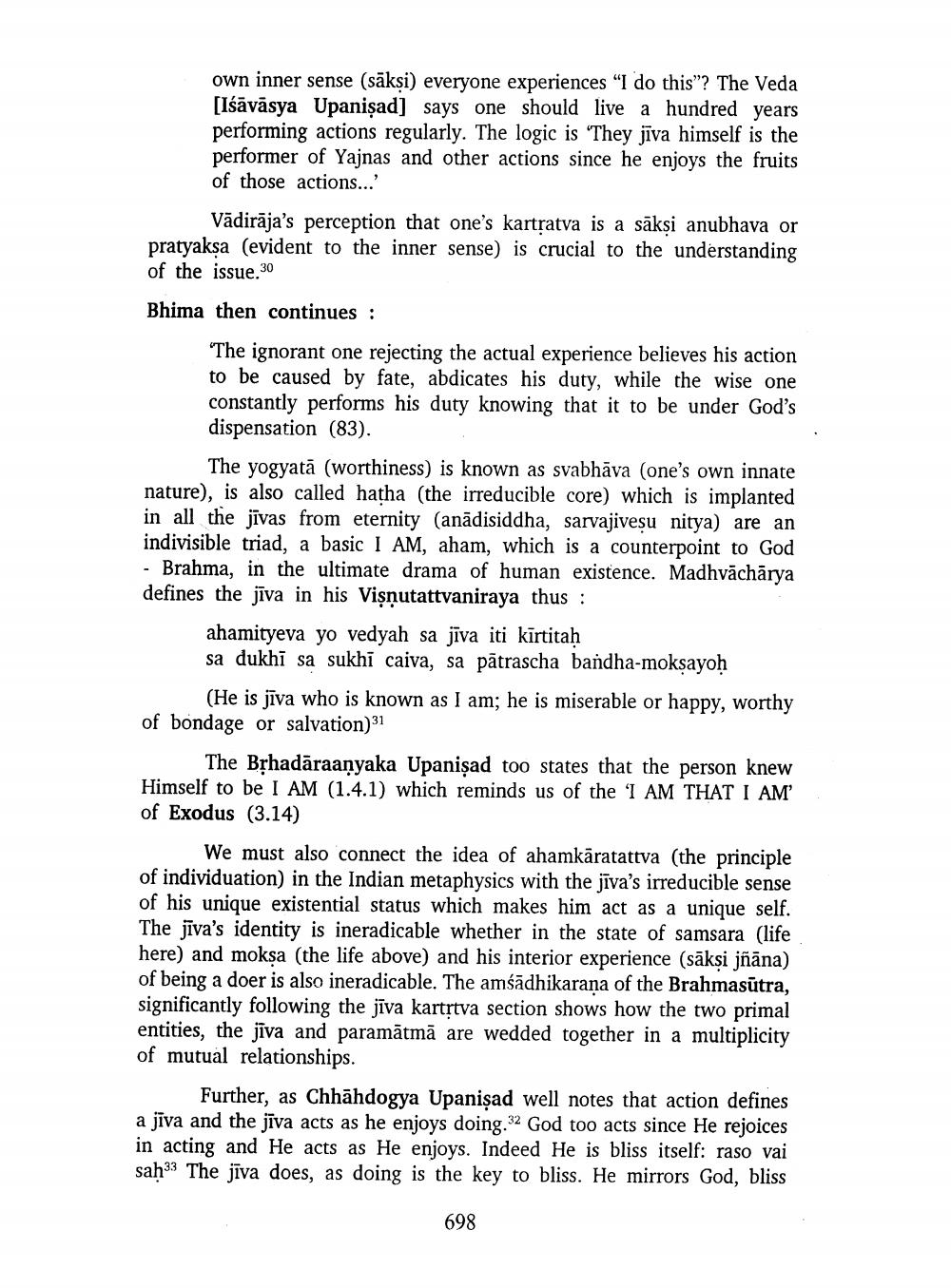________________
own inner sense (sākşi) everyone experiences “I do this"? The Veda [lśāvāsya Upanișad] says one should live a hundred years performing actions regularly. The logic is 'They jīva himself is the performer of Yajnas and other actions since he enjoys the fruits of those actions...'
Vădirāja's perception that one's kartratva is a sāksi anubhava or pratyaksa (evident to the inner sense) is crucial to the understanding of the issue.30 Bhima then continues :
"The ignorant one rejecting the actual experience believes his action to be caused by fate, abdicates his duty, while the wise one constantly performs his duty knowing that it to be under God's dispensation (83).
The yogyatā (worthiness) is known as svabhāva (one's own innate nature), is also called hatha (the irreducible core) which is implanted in all the jīvas from eternity (anādisiddha, sarvajivesu nitya) are an indivisible triad, a basic I AM, aham, which is a counterpoint to God - Brahma, in the ultimate drama of human existence. Madhvāchārya defines the jīva in his Visnutattvaniraya thus :
ahamityeva yo vedyah sa jīva iti kīrtitah sa dukhi sa sukhi caiva, sa pātrascha bandha-moksayoh
(He is jīva who is known as I am; he is miserable or happy, worthy of bondage or salvation)31
The Bșhadāraanyaka Upanişad too states that the person knew Himself to be I AM (1.4.1) which reminds us of the 'I AM THAT I AM of Exodus (3.14)
We must also connect the idea of ahamkāratattva (the principle of individuation) in the Indian metaphysics with the jīva's irreducible sense of his unique existential status which makes him act as a unique self. The jīva's identity is ineradicable whether in the state of samsara (life here, and moksa (the life above) and his interior experience (sāksi jñāna) of being a doer is also ineradicable. The amsādhikarana of the Brahmasutra, significantly following the jīva kartrtva section shows how the two primal entities, the jīva and paramātmā are wedded together in a multiplicity of mutual relationships.
Further, as Chhāhdogya Upanişad well notes that action defines a jīva and the jīva acts as he enjoys doing 32 God too acts since He rejoices in acting and He acts as He enjoys. Indeed He is bliss itself: raso vai sah33 The jīva does, as doing is the key to bliss. He mirrors God, bliss
698




